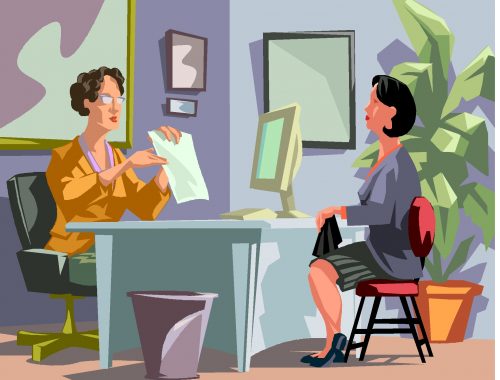Evaluating Anxiety
While working with director Paula McFetridge on the new writing piece ‘Not On Our Watch’ by Louise Matthews, the prejudice homeless women in our society face was an undeniable and constantly pervading theme. As one of the leading supporters of new writing in the North of Ireland, Kabosh are committed to producing work that brings light to those who are not heard. Part of their approach to ensuring their performances leave audiences not only thinking about the content, but also having a desire to be active and speak out about the topical issues they present, is the use of evaluation forms. These assess the audience’s understanding of the issues presented by presenting a series of statements with which the audience are asked to rate their agreement before watching the performance and after.

During my time before Christmas at Kabosh, I worked collaboratively with creative producer Lizzie Howard on data input for data collected in the evaluation forms from a recent tour of ‘Green and Blue’, which will be used in their company evaluation of the tour. This involved teamwork with Lizzie to ensure we managed to input the data in a cohesive manner that was time efficient. Having worked intimately on this, reading audience feedback and understanding the value of these scores, I was pleasantly surprised when Paula asked if I would assist in creating the questions for the evaluation forms for ‘Not On Our Watch’.

Through Gibbs’ reflective model, I hope to assess my feelings and approach to teamwork within Kabosh, particularly with Paula in creating this evaluation form.
As it occurred
‘Not On Our Watch’ was a play with a lot of moxie. It tackled the very difficult circumstance of the closure of the sole women’s-only hostel in the North of Ireland, which officially shut it’s doors in March of 2022. Louise Matthews’ work, performed by three multi-roling performers, allowed audiences to “[…] feel their anxieties and uncertainties. You felt the weight of their past traumas and present struggles.” (Socialist Party, 2023).
Paula pitched the idea of me helping with the evaluation questions because I had spent a significant amount of time in rehearsals with the actors and knew the piece intimately. Usually, Kabosh’s evaluation forms are brought about by Paula brainstorming questions, Kabosh’s general manager Andrew Hume approving them, then Lizzie formats and designs the forms themselves. To facilitate this process, I undertook research into the phrasing Kabosh uses most frequently when creating these questions, looking again at evaluations from ‘Green and Blue’ and then also at ‘Shedding of Skin’. I focussed primarily on the evaluations for ‘Shedding of Skin’ as it thematically addressed women’s issues. I identified that phrases such as ‘I have an understanding of…’ or ‘I have an awareness of…’ came up frequently. This meant that I could combine my research with the themes I identified in the play and create some suggestions for questions. Some examples were:
I have an understanding of the women’s services available in the North.
I understand the importance of women’s only spaces.
I have an awareness of the tasks the service providers carry out.
I then went into a team meeting with Paula where we agreed that the themes of concern were; the importance of women’s only hostel accommodation, the idea of welfare reform and the difficulties people face when taking strike action. We discussed the wording choices, the implications of certain words, particularly ‘welfare reform’, and the clarity of the statements. Having done this, we then passed our suggestions along to Andrew who gave approval to the following questions:

Mood Swings
Having established the event, Gibbs’ reflective model asks us to reflect upon how we felt in the moment. When Paula initially asked me if I wanted to be involved in creating the questions, I felt a sense of pride. Her faith in me to understand such an emotionally and socially complicated piece massively boosted my confidence. This, alongside the work I had done with the evaluation forms in the past, meant I felt prepared and accomplished enough to come up with some great suggestions. However, within the dark, intimidating world of Kabosh’s rehearsal room, ironically named ‘The Barracks’, I found myself feeling shy and unsure of myself when facing such a well developed and intelligent force as Paula McFetridge. The prospect of disappointing her was overwhelming, and when the team meeting began, I was quiet and withdrawn. However, Paula’s excellence with people, which she primarily demonstrates through a loving and open relationship with her cast and creative team, meant she very quickly reassured me. ‘The Handbook of Work Based Learning’ highlights that “if you are in closer relationships with people then learning new skills becomes easier” (Cunningham, Dawes, Bennett, 79, 2004). This allowed me to give suggestions with more certainty, and after a short time I felt comfortable enough to challenge Paula’s suggestions, ask her why she chose certain words and suggest edits. In the end, I felt such pride in myself for stepping up to the plate, and a much more significant part of the team than I had before.

Highs and Lows
I think that overall, I made good use of my research and development skills while working on this project. Doing research for my drama modules has taught me how to be focussed and considerate of context and how to analyse language in a manner which aided my ability to create suggestions for the evaluation questions. I felt like by putting in the hours working in Kabosh’s office, my presence was more valuable in the creative space, as I had developed a better understanding of the language used. Alongside this, my analysis of the text and performance, developed in my directing and design module last year, allowed me to understand the complex themes presented in Matthews’ play. Although shy to start, I’m glad I developed confidence over time and gained a sense of pride in my own skills and knowledge. However, I wish I had gone into the conversation with more confidence, having conducted research and being trusted by Paula, I should have had the bravery to trust my own work.

Hindsight is 20/20
Had I had the time, I would have loved to have conducted more research on the agitprop style of the performance, understand its historical relevance, particularly in the North of Ireland, and therefore better understand the political questions that the play was asking, as many of my suggestions focussed on the human cost and the personal struggles of the women.
Foresight is…
If I had the opportunity to do this again, I would want to go in with the confidence I lacked the first time. As someone who has struggled with anxiety, particularly in a post-covid world, I have found it incredibly difficult to trust myself and my decisions, particularly when working with new people. However, I trust that going forward I can work on this, particularly as my relationship with Kabosh continues to grow, and I hope I can make more confident contributions going forward. Gibbs’ model highlights that by the end of the evaluative method “you are likely to develop insight into your own and other people’s behaviour in terms of how they contributed to the outcome” (Jasper, 82, 2013). By completing this blog, I have come to realise that despite finishing therapy almost a year ago, anxiety still has a significant hold on me, particularly in new spaces. However, I feel that if I had the opportunity to conduct more research, the next time I get to work on something similar, I can trust myself enough to confidently work in a team.

Bibliography:
Cunningham, I, Dawes, G and Bennet B. (2004) The Handbook of Work Based Learning. Aldershot: Gower.
Jasper, M. (2013) Beginning Reflective Practice. 2nd Ed. Boston: Cengage Learning.
Socialist Party. (2023) Review: Not On Our Watch. Available at: https://www.socialistpartyni.org/analysis-news/culture-and-reviews/review-not-on-our-watch/?fbclid=IwAR3TuewvwkqrlKX8rUprO8F0U2KAf4U5_rilkIF04gs8R5vMF0mDusiOcvU (Accessed 23/02/23)
GETTING HIRED FOR YOUR DREAM JOB 101
Interview Ready!
You May Also Like

The World of Theatre upon Reflection
30 November 2022
Challenge Accepted Sir!
18 April 2023
